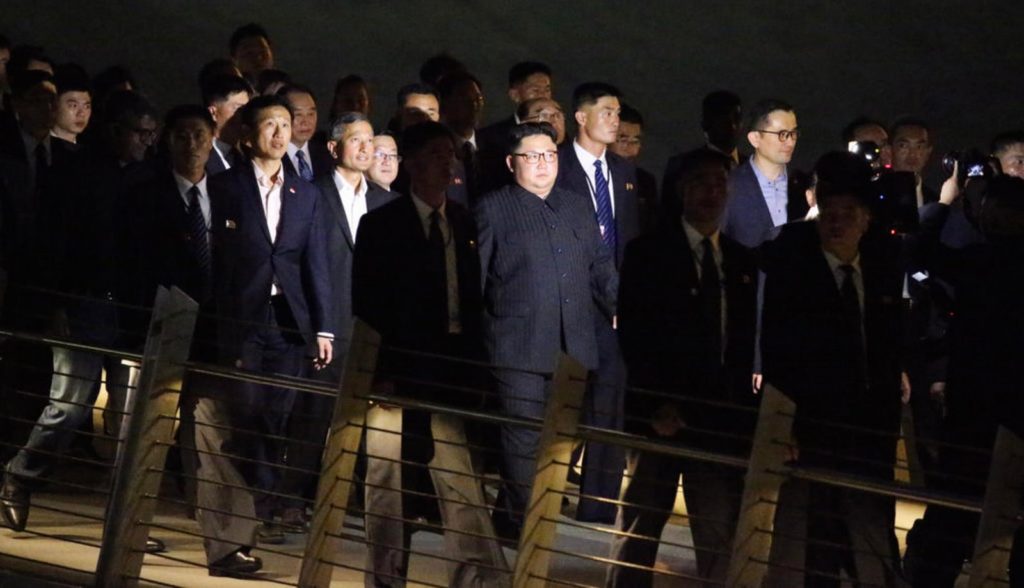The Peninsula
Kim Jong-un’s Two Strategic Decisions

By Mark Tokola
Even before the June 12 Singapore Summit, but particularly since then, the question being asked is whether Kim Jong-un really intends to denuclearize North Korea. Commentators are divided on whether: (1) his offer is sincere, (2) he has no intent to denuclearize and is simply buying time through negotiations for sanctions to erode and to advance his weapons program covertly, or (3) he intends to agree to denuclearize and then to cheat by obstructing inspections or reneging on his commitments. Any of the three assumptions could be true. The United States has experienced the latter two from North Korea in the past.
However, the fork in the road at which Kim Jong-un finds himself is about more than whether or not to hang onto his nuclear weapons. He has two strategic decisions to make. The first is whether to carry out a serious program of denuclearization – the details of which remain to be defined but generally would add up to a program acceptable to the United States, South Korea, and Japan in scope, timescale, and verifiability.
For North Korea to abandon or significantly limit its nuclear weapons would not by itself fundamentally reset relations with the United States. Kim’s second strategic decision is whether to begin a process of reform that would lead to North Korea being a more normal country in regard to its diplomatic and economic policies.
A denuclearized North Korea that maintained chemical and biological weapons, that continued to point missiles and artillery at Seoul, that illicitly proliferated conventional weapons, and that continued to engage in cyber-warfare and cyber-crime, would remain a serious threat to its neighbors and even directly to the United States (a la the Sony Picture hack). Even in the midst of people-to-people exchanges, economic cooperation, and other signs of normalcy, North Korea’s weapons would remain cocked and loaded. North Korean diplomacy would remain coercive rather than peaceful.
Denuclearization would be a good first step. It would be prudent to test Kim Jong-un’s sincerity by seeing how far he is prepared to denuclearize and then to go on from there. Maybe his vision for North Korea’s future is different from its past. Maybe he sees in President Trump and President Moon Jae-in an unusual opportunity to reset North Korea’s foreign relations and to put his country on a new path. Or, maybe he is playing it by ear and does not himself know how the current diplomatic flurry is going to end.
It is unlikely that Kim Jong-un wants North Korea to become a liberal democracy, but he may want it to become an authoritarian state that is also a member of the international community. We have many of those. If that is his decision, then there may be a pathway that would lead to North Korea becoming a different kind of state, one that does not habitually threaten other countries and that puts up with being constrained by a least a minimal level of international rules and norms, perhaps even including how it treats its own citizens. Making North Korea one of the worst human rights offenders would be progress over its being the worst human rights offender.
If Kim Jong-un intends to partially or wholly denuclearize in exchange for easing of economic pressure, then we may avoid the threat of nuclear war. That would be desirable but would hardly mark a new era for Northeast Asia, or for the people of North Korea. If Kim Jong-un, contrary to almost all expectations, actually is a reformer of historic proportions who is prepared to risk transforming his country, then we may be seeing history in the making. Sometimes even the longest of shots pay off.
Mark Tokola is the Vice President of the Korea Economic Institute of America. The views expressed here are his own.
Photo from Boaz Guttman’s photostream on flickr Creative Commons.
